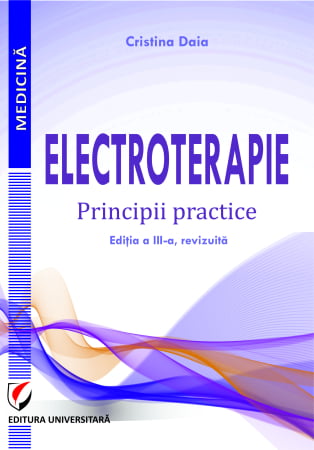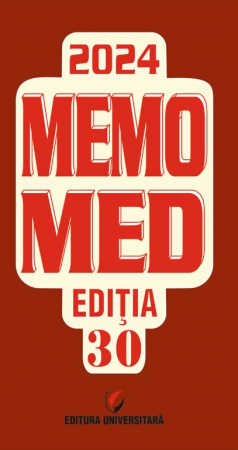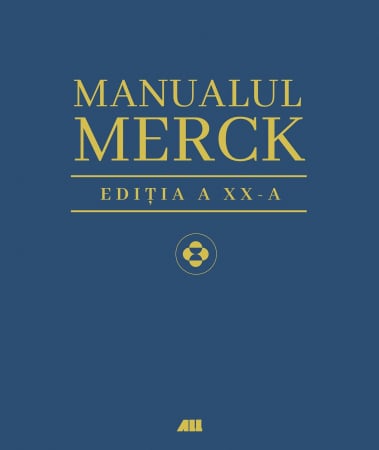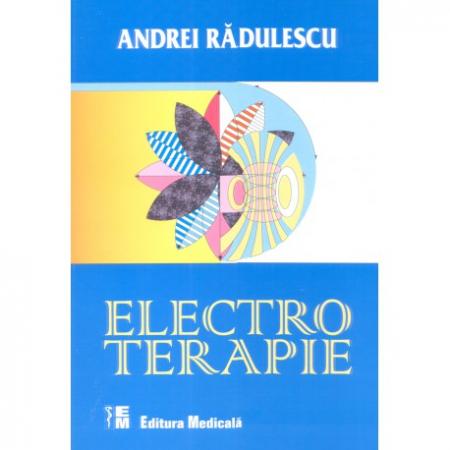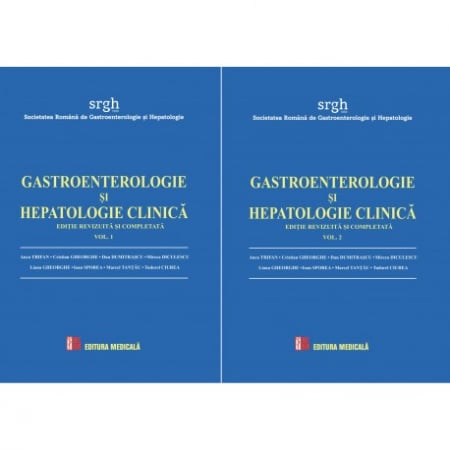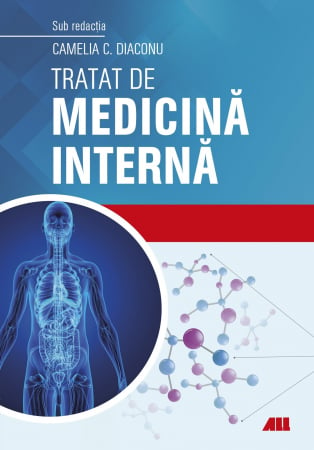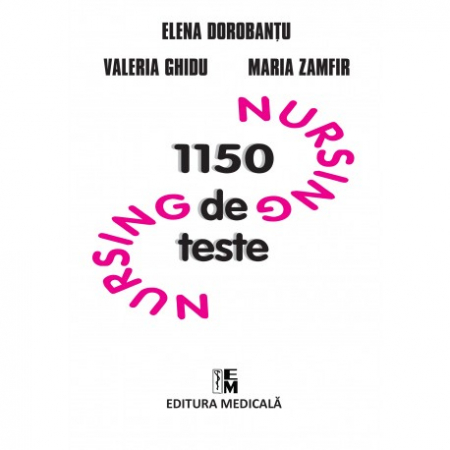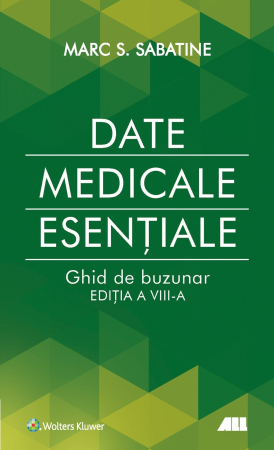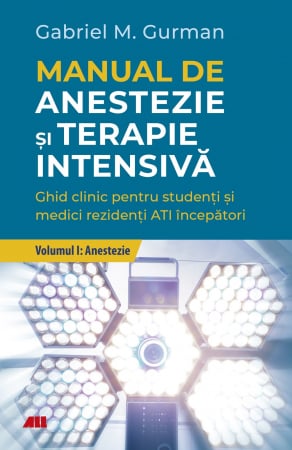ISBN: 978-606-591-080-5
Publisher year: 2011
Edition: I
Pages: 424
Publisher: Editura Universitară
Author: Simona Trifu, Camelia Petcu
- Description
- Download (1)
- Authors
- Content
- More details
- Reviews (0)
The paper "Clinical psychiatric cases. Psychodynamic explanations and psychological complex" has two parts: Case studies from a psychotherapeutic perspective and case studies from a psychiatric perspective. These approaches are preceded by a chapter on mental disorder experienced or observed by children as the original chapter so disturbing.
We would be unjust if we did not do justice to the team of students in psychology and medicine, and medical residents who have contributed to the book. Their offering is, to the dismay of some of my colleagues who will read the preface, unrepeatable! For, in essence, it is their youth brings courage, enthusiasm, a certain ingenuity, and vision. I do not know what haunts me Yesenin, Do not regret, I do not mourn, do not cry / All pass the flower shattered / My autumn wither the cold / I'll never be young again ."...
One of the fundamental merits of the book is that it is easily read as a novel (good), that invites a new reading.
"Beautiful book, honor to whom you wrote! "
Prof. Radu Mihailescu
"I never promised you a rose garden."
Antonia Trifu
I would like to share with you - the many and happy that you are normal - the impressions we experienced this summer, to meet people who have heart and mind sick people whom we call insane. Among the first things I learned was that word and that hurts. Then I read the book I never promised a rose garden (Hannah Green), my first book is a contact with suffering.
It's about a teenager who spent four years of life in a psychiatric hospital. Deborah - heroine - living separately in two, as the heart of France. The world seemed evil and terrible reality, and black nights experienced in the Arctic Circle cold, cruel and cold foam crashing waves that desperately shore. So this girl is struck by the reality of emotions today I live. Her imaginary world in which the refuge was divided into four levels - Yr and Aldebaran were creations of the mind of Deborah, you figment as you create something dear and price. There were echoes of her desires, living the charmed water, mountain and rock strong as old as religion itself. Deborah's book is an effort, along with his therapist, Fried, to integrate the two worlds, you can move easily from the reality in which we all live in fantasy world of his own unconscious.
My book has produced strong emotions, deep vibration, especially after I read it, I met Carmen, a real patient, which I would have liked much to help. Reading these lines, I lived states otherwise, by itself paradoxical their content. Adolescence in a hospice is a dead life, a passion ice cold, full of pleasure torments. In the world of madness, love hating, laughing cry of happiness, you're an idiot who creates brilliant poetry and being silent scream. My eyes sparkled following lines, filled with creeps like fireflies. My lips were pale as wax old, my hands like puppets dancing chaotically broken.
He impressed me more than metaphor, which gives the title of the book. Deborah revolt on the grounds that his therapist through meetings held for four years, I "steal" imaginary world without giving them real world in another exchange. Exit the disease, to face the same harsh reality of losing contact with others who had fled. I realized this summer that being psychotic is dying to live every moment to decipher the reality nemaireusind, still dancing a dance without name, leaving remaining the same fate!
-
Clinical Cases of Psychiatry. Complex Psychodynamic and Psychological Explanations
Download
CAMELIA PETCU is the Head of the Department at the Clinical Hospital of Psychiatry „Prof. Dr. Alex. Obregia ”, doctor in Medical Sciences, assistant professor at the Department of Psychiatry of UMF“ Carol Davila ”, psychoanalyst within SRP (Romanian Society of Psychoanalysis), direct member of IPA (International Psychoanalytical Association) and independent psychotherapist in psychoanalytic psychotherapy (within ARP - Romanian Association of Psychoanalytic Psychotherapy and FROPP - Romanian-Dutch Foundation of Psychoanalytic Psychotherapy).
Instead of entering:
Mental disorder - experienced or observed by children / 9
Fabulous adventures in search of self - the psychodramatic evolution of a 6-year-old girl -
Csilla Lazsadi / 11
The universe of little Denisa
Laura Netea / 21
Amine or labor to be perfect
Maria Palade / 27
A secret place, where children turn into dolls
Anca Spiridon / 37
The multiple realities of the world of schizophrenia
Arina Trifu / 47
PART ONE:
CASE STUDIES FROM A PSYCHOTHERAPEUTIC PERSPECTIVE
Spectator at the movie of his own life
Ioana Cicu / 51
Ira Dei Chaos Mundi Homo Querem Amorem
Alina Costea Csatlos / 59
"We keep enshrined in our minds our loved people"
(Melanie Klein)
Alina Csatlos / 67
A being too young for a disorganized mind
Ioana Deac / 71
Out of fusion - a boomerang that hits
Andreea Dragotoiu / 77
In the world, among us, lives an army of soldiers ...
Raluca Dumitrescu / 85
When fate breaks the fusion ...
- repositioning in the Self -
Adriana Stanca (Georgescu), Simona Busuioc / 91
"Split Mind" (Bleuler)
Alina Ghetu / 97
Toy
Catalina liuta / 103
"I want my daughter to come home ..."
Mihaela Luca / 108
Affective and behavioral regression in bipolar affective disorder
Elena Onisoru / 117
Elements of psychopathology of a borderline case
or
When my mother doesn't know how to love ...
Ioana Scorus / 121
The face in the mirror is dull
Olga Scurtu, Camelia Petcu / 130
Lowering the mental level
Luise Stavarache Constantinescu / 135
The art of breaking through disease
Simona Trifu / 140
STORY IN STORY I: A CASE OF PSYCHANALYSIS ...
The nameless girl
Petruta Gheorghe / 150
STORY IN STORY II: ... AND CASE SUPERVISION
Karina in the Land of Numbers
Simona Trifu / 160
PART TWO:
CASE STUDIES FROM A PSYCHIATRIC PERSPECTIVE
"God performed a miracle ... and I'm Daddy's daughter"
Adina Barbulescu / 173
"I look in the mirror and I don't recognize myself ... it's as if my soul is out of my body ... I see myself, but it's not me ..."
Cristina Avram, Mihaela Hitcu / 180
Catatonia - as a defense mechanism of a fragile brain
Andreea Batachia / 189
Vulnerability to stress decompensation in personality disorders
Andreea Cosmina Boriceanu / 193
"I miss me ..."
Ioana Borleanu, Camelia Petcu / 198
When cognitive functions fail ...
Corina Burciu / 210
Insistence on one's own fault - refusal of interpersonal relationships
Elena Coman, Simona Trifu / 221
Terror as the axis of interaction in schizophrenia
Elena Coman, Simona Trifu / 232
Ascetic feelings: flat feelings?
Silvian Constantinescu / 239
Vampires do not exist.
And yet, some people are afraid ...
Rozina David / 243
"Tomorrow morning I'll take off my robe ...
I'm starting a new life!”
Ana Maria Draguta / 256
Madness for two ...
Cristina Dude / 267
"I would ask permission ..."
Dorina Ionita / 277
Advocacy for value ...
Mihaela Luca / 283
Vulnerability and triggers in triggering dispositional episodes
Ioana Mihai / 299
"We were waiting for something that could give meaning to life"
Anca Moraru / 305
The house - the last symbolic protection wall of the inner void
Teodora Valeria Parauta / 311
Anxiety as a reaction - signal to object loss
Vilia Pojoga / 315
The world of delusional representations
Maria Constantin Ratescu / 319
"I have died several times ... I am not afraid of death!"
Alecsandru Soare, Georgiana Sandu, Andreea Madalina Dogar / 328
Aggressiveness or destructive intent in schizophrenia
Raluca Stanica, Simona Trifu / 338
Discharge of hostility into one's own body
Adriana Stoica / 349
Ambivalence, aggressive tension and great fantasies in paranoid schizophrenia
Simona Trifu, Camelia Petcu / 354
Delusional constructions and symbolic meanings in schizophrenia
Simona Trifu, Camelia Petcu / 369
Psychastheniform defect in schizophrenia
Simona Trifu / 381
Psychotic personality disorganization
Simona Trifu / 386
Manic self-discontinuity - Euthymic self
Simona Trifu / 392
I neglected and "standards of emotional attention" in the major depressive episode with psychotic anxiety
Simona Trifu / 397
Denial of time in schizophrenia
or
"I've been living for eight billion years"
Simona Trifu / 405
Loss of inner coherence in disorganized schizophrenia
Simona Trifu / 410
Selective bibliography / 417
IN PLACE OF END ... / 419
Psychiatry is part of this trend. From the classic case studies of Freud (Dora, little Hans, Rattenman, Wolfsmann, President Schreber) to the DSM IV TR Casebook we find a somewhat transnosographic descriptive typology and even for this reason with perennial value, especially by kneading the pulpit semiological aspects of the cases.
In a completely undeserved way, psychiatrists are constantly increasing the ranks of the unhappy intellectual world. The destiny of Cinderella of their profession is reflected day by day and year by year on their own life, on their own destiny. Perhaps one of the sources of this unhappiness is the special difficulty of defining the notions with which it operates, a difficulty speculated maliciously by "opponents". Among other peculiarities of the field there is that of adversity: see the phenomenon marked by philosophical and ideological accents of anti-psychiatry.
If we resemble psychiatry with an unknown country, then semiology should be the language of this country, a foreign language that must be learned if we want to understand what is happening in such a country. A difficult undertaking, not least because, we must admit, psychiatric language has a number of inconsistencies, inconsistencies and even inadvertences.
The cornerstone of any case is the psychiatric examination. Psychiatric examination essentially means dialogue between doctor and patient. This dialogue (freer or tighter), in a semiotic perspective, remains, in fact, a transmission of information from a sender (patient) to a receiver (psychiatrist). The peculiarity of this interrelation is the fluidity of the vehicle carrying the information, the word. The difficulty of this interrelation consists in the fact that it involves at least 3 encoding / decoding operations:
1. primary coding: what the patient feels in what he says, in other words, the transformation of a certain feeling into a verbal communication, that is, into a sentence;
2. the decoding by the psychiatrist of this communication, ie the translation of the sentence from the patient's language into the psychiatrist's language;
3. secondary coding: transforming the sentence into a semiological notion.
We will notice that 66% of this effort belongs to the psychiatrist. It is true that he can increase the patient's effort through guided questions, through returns, that is, through feedback. To stay in Wienian terminology, we will note that the primary coding operation involves a predominantly intuitive, black-box mechanism ("Dionysian" thinking, "right hemisphere" thinking), while the secondary coding operation involves an analytical mechanism, of white-box type (“apollinic” thinking, “left hemisphere” thinking).
During the clinical interview, a young patient tells us, "My soul is in everything around me." In the process of secondary coding, the psychiatrist must identify the optimal variant of discrimination between the various meanings of this sentence: marker of noetic and / or perceptual productivity? depersonalization - derealization? Or, simply, metaphorical language? Two factors will influence his decision: a prospective, analytical factor, in which directed, dissecting, “feedback” questions are essential; and a retrospective, synthetic factor, practically superimposable to the notion of “clinical context”.
Each encoding / decoding operation is burdened with a certain risk of error. This risk is difficult to assess. We believe it is necessary to emphasize one more aspect. We showed above the importance of an active attitude of the psychiatrist (through guided questions) during the clinical interview. Unfortunately, there is also a risk of error, specific to psychiatry. It is probable that through this very active intervention the psychiatrist will produce "artifacts", to distort the expression of his patient's feelings. We could talk here about a certain psychiatric correspondent of Heisenberg's principle of indeterminacy, probably more accentuated in the psychometric version of the diagnosis.
We could complicate this discussion by evoking the situation, not even rare, of the clinical examination performed, in a certain temporal succession, by two psychiatrists. Secondary coding operations support an increase in the risk of error (if it is important to corroborate the two interviews), and the measure of this risk can be given by what has been called fidelity between evaluators (inter raters), structural parameter of any test, as well as sensitivity or specificity.
But not to complicate things, I evoked this situation. Any encoding / decoding operation can be assimilated, in the end, to a translation effort.
In this paper the effort mainly belongs to the authors.
Simona Trifu is a primary psychiatrist, associate professor at the Faculty of Psychology and Educational Sciences, University of Bucharest (where she teaches Psychopathology and Psychiatry to students and master students), doctor of psychology, doctor of medicine, direct member of IPA (International Psychoanalytical Association), senior clinical psychologist (CoPsi accredited supervisor) and senior psychotherapist in psychoanalytic psychotherapy of children and adolescents (CoPsi accredited supervisor).
Camelia Petcu is the Head of the Department at the Psychiatric Clinical Hospital „Prof. Dr. Alex. Obregia ”, doctor in Medical Sciences, assistant professor at the Department of Psychiatry of UMF“ Carol Davila ”, psychoanalyst within SRP (Romanian Society of Psychoanalysis), direct member of IPA (International Psychoanalytical Association) and independent psychotherapist in psychoanalytic psychotherapy (within ARP - Romanian Association of Psychoanalytic Psychotherapy and FROPP - Romanian-Dutch Foundation of Psychoanalytic Psychotherapy).
The paper "Clinical cases of psychiatry. Complex psychodynamic and psychological explanations" has two parts: Case studies from a psychotherapeutic perspective and Case studies from a psychiatric perspective. These approaches are preceded by a chapter devoted to the mental disorder experienced or observed by children, a chapter as original as it is disturbing.
We would be unfair if we did not properly appreciate the group of students in psychology and medicine, as well as the resident doctors who contributed to the book. Their offering is, to the despair of some of my confreres who will read the preface, unrepeatable! Because, in essence, it is about their youth that brings courage, enthusiasm, a certain ingenuity, but also vision. I don't know why Esenin haunts me: "I don't regret it, I don't mourn, I don't shout / Everything passes like a shattered flower / Withered from my cold autumn / I will never be young again."
One of the fundamental merits of the book is that it is he reads easily, like a (good) novel, as he invites to a new reading.
,, Beautiful book, honor to whom he wrote you! ”
Assoc. Prof. Dr. Radu Mihailescu
Bucharest, December 5, 2010

6359.png)
![Clinical Cases of Psychiatry. Complex Psychodynamic and Psychological Explanations [1] Clinical Cases of Psychiatry. Complex Psychodynamic and Psychological Explanations [1]](https://gomagcdn.ro/domains/editurauniversitara.ro/files/product/large/cazuri-clinice-de-psihiatrie-explicaii-psihodinamice-i-psihologice-complexe-2136-981723.jpg)
